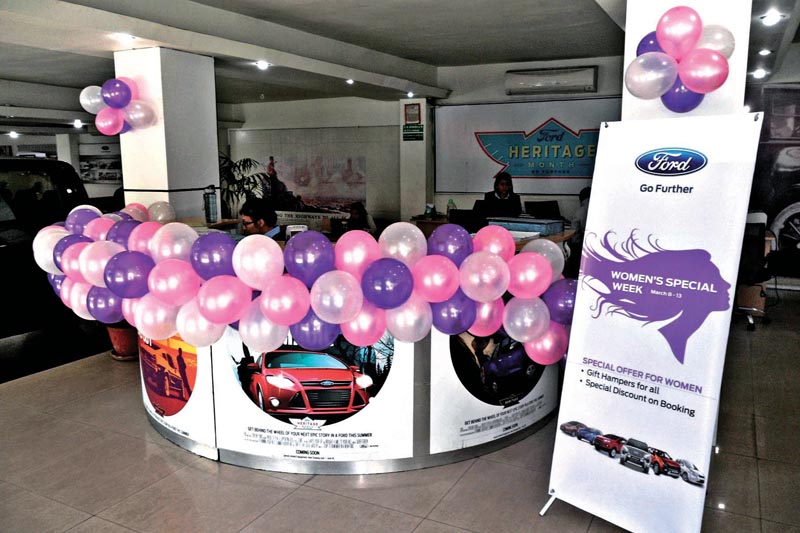Automobile industry getting back on track
The Nepali automobile industry is recovering after major setbacks like the earthquake last April and the economic blockade that lasted for months. Demand from consumers for acquiring new vehicle is also positive and increasing. Today, the automobile industry in Nepal is in a much more vigorous condition and supplying vehicles according to demand from consumers. All automobile dealers are positive about the changing scenario of the market and planning to come up with new schemes and events to rejuvenate the automobile industry. Continuous inquiry about the arrival of new models and booking for existing models are a sign of revival of the domestic automobile industry.
“As compared to last year the automobile industry is facing a huge loss of approximately 70 per cent in the market due to the blockade and fuel shortage but now the industry is reviving back to normal sales,” said Sunil Chhetri, Deputy General Manager at GO Automobiles, authorised distributor of Ford. “Before this the situation was not pleasing, we were restrained and faced problems while importing vehicles, but now with the end of the blockade and fuel shortage there is definite interest among potential buyers,” he said, adding that those buyers who were in a watch and wait state about whether to buy a new vehicle have finally made up their minds.
According to him, suitable interest rates on auto loans from different commercial banks and smooth supply of vehicles have helped raise sales by 20 per cent which is a positive sign. “Besides the other challenges, the major problem that the domestic automobile industry faces is that most of the sales volume is from within the capital whereas outside the valley, demand for vehicles is low,” he said. “The government should focus on road expansion and invest a proportionate amount of the budget on road maintenance, so that the public will be facilitated and opt to purchase a vehicle,” he concluded.
“Now the situation is normal and consumers are showing interest in the purchase of vehicles. However, sales are increasing at a low rate,” said Rupesh Sharma Bhatta, Assistant General Manager at Laxmi Intercontinental, authorised distributor of Hyundai Motors. According to him, the main challenge currently faced by the automobile industry is unavailability of fuel. Consumers are interested in purchasing vehicles but due to the uneasy access to fuel
and continued shortage many are discouraged from purchasing a vehicle. “Hyundai sales have been increasing by 30 per cent in the market which is a good sign of stimulating back to a normal competitive market. In addition; we are more focused on supplying booked vehicles by the end of March. Demand and orders were not fulfilled earlier due to the blockade,” he said.
“The automobile industry is coming back with a vengeance,” said Karan Chaudhary, Executive Director of CG MotoCorp, authorised distributor of Maruti Suzuki, adding that they plan to come with new launches by mid April 2016. He feels that it will definitely convey a positive message to buyers. He further shared, “The only problem we are facing is the added cost due to the altering of port. Previously we were importing vehicle from Raxual port but due to the blockade we shifted to the Sunauli port which means an increase in cost of transporting the vehicle and broadens the consumer’s uncertainty for purchasing.”
Despite the problems Chaudhary is upbeat. He said, “Besides the incurred losses, we are back with our commanding marketing strategies and we have been successful in increasing our sales by 49 per cent in the market,” he added.






